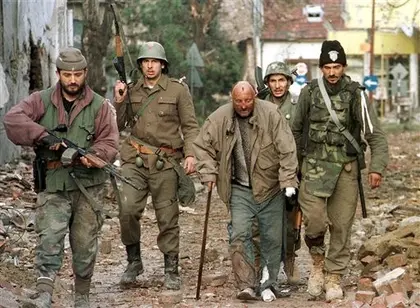Goran Hadzic, 52, was the last fugitive among 161 military and political leaders of the Balkans conflicts indicted by the court since it was created in 1993 while the Yugoslav republics were still in flames.
His capture last Wednesday in a northern Serbian village clears the way for the court to close its doors when it concludes the current trials and appeals, probably in 2015.
JOIN US ON TELEGRAM
Follow our coverage of the war on the @Kyivpost_official.
Hadzic was being asked Monday to plead to 14 counts of crimes against humanity and war crimes during his 1991-1993 leadership stemming from the attempt by Serbs to split off one-third of Croatia and join it to a Serb-dominated state.
They included the destruction of the town of Vukovar and the seizure of some 260 prisoners from the town’s hospital, who were taken to a nearby farm, tortured and murdered, according to an updated indictment approved by judges last week.
Hadzic may defer his plea for 30 days.
His detention, after seven years on the run, came two months after Serb police uncovered and arrested Ratko Mladic and three years after finding Radovan Karadzic, the military and political leaders respectively of the Bosnian Serbs.
Both are accused of genocide in the mass murder of Muslims during Bosnia’s ethnic war that ended in 1995.
Serbia, widely blamed for instigating Europe’s worst violence since World War II, touted Hadzic’s capture as the completion of its responsibility to the U.N. tribunal and the removal of a major hurdle in its campaign to join the European Union.
But Serge Brammertz, the chief prosecutor, reminded Serbia that other war crimes suspects remained to be prosecuted by the national courts of the states that emerged from Yugoslavia’s ashes.
"The victims of thousands of other crimes are still waiting for justice," he told reporters Friday as Hadzic was extradited to U.N. custody in The Hague. "The prosecution of war crimes in national proceedings remains a critical challenge for the region and its people."
Still, Belgrade’s latest action boosted its prospects for EU candidacy.
"Clearly, Serbia has come in from the international cold," London’s Financial Times daily said in an editorial Monday. While more domestic reforms are needed, "awarding Serbia candidate status will sustain the momentum for change generated by the arrests of the war crimes suspects."
You can also highlight the text and press Ctrl + Enter




